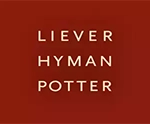From the Member’s News Brief of the Pennsylvania Association for Justice for February 18, 2015-
Nursing home inspectors are supposed to keep the homes safe for your loved ones.
But Action News (WTAE – Pittsburgh) Investigates has found a case of the nursing home industry telling the nursing home regulators how to do their job – and succeeding.
Last year the state Health Department — which inspects nursing homes — posted a disclaimer on its website that says the reports are not intended to be used in lawsuits.
Action News Investigates has learned the nursing home industry not only lobbied for the disclaimer — but also helped write it.
Home video shows Madeline Scampone celebrating one of her last birthdays at Highland Park Care Center – the nursing home where she spent her final years.
After she died, her son sued Highland Park Care Center. The lawsuit accused the home of depriving Scampone of adequate food, water and medicine.
Her lawyers wanted to use inspection reports showing the home was cited for inadequate staffing and failure to prevent some residents from dehydration.
But the nursing home fought back, citing a disclaimer on the Health Department website saying inspection reports are “not intended to be evidence of compliance
with any legal standard of care in third-party litigation.”
Reporter Paul Van Osdol asked Highland Park Care Center attorney John Bass if he thought the disclaimer meant the inspections are not supposed to be used in lawsuits.
“Well that’s how I read it. And that’s what we have taken the position, absolutely,” Bass said. That was a surprise to Scampone family attorney Peter Giglione.
“We were even more surprised later when we found out the circumstances surrounding how it came out,” Giglione said. They learned the department began working on the disclaimer only after the nursing home industry’s chief lobbyist — Stuart Shapiro of the Pennsylvania Health Care Association — sent an email to then-state health secretary Michael Wolf.
Shapiro was worried about what he called “unfair and misleading” advertising by a major law firm that sues nursing homes. He hoped to meet with the health secretary to “explore … some potential solutions.”
Within hours Wolf emailed his aide – “Set this up.”Emails obtained by Action News Investigates reveal that during the next year, nursing home industry lawyers and Health Department officials worked together to write the disclaimer. In an email to Wolf and Deputy Secretary Anna Marie Sossong, the chief nursing home regulator, an industry attorney praises her “willingness to work cooperatively and creatively to find a solution that is both effective and quick to implement.”
Van Osdol asked Sossong about the disclaimer. Van Osdol: “Why use that language? Is it because that’s what the industry wanted?”
Sossong: “It’s certainly because it was expressed as a concern to the department.”
Van Osdol asked Shapiro, the nursing home lobbyist, if the industry wrote the language used in the disclaimer.
“The Department of Health posted the disclaimer, was responsible for the disclaimer and we were delighted that they did it because of predatory law firms,” Shapiro said.
Van Osdol asked Sossong: “No patient advocacy groups, no AARP, nobody else was asked about this other than the nursing home industry and their attorneys, why not?”
Sossong: “Well it sort of affects them I guess.”Van Osdol: “It affects people who are in the homes too?”
Sossong: “Yes it does but it’s a significant improvement for the public.”
That view was not shared by some people who have loved ones in nursing homes.“We need to challenge the state to make a change. That’s not fair to us. That’s not fair to patients. It’s not right,” said Richard Royster of Mt. Washington. An expert in government ethics said the emails reveal an overly cozy relationship between the nursing home lobby and the state’s nursing home regulators who are supposed to be protecting the public.“It almost looks like the industry captures the agency that’s supposed to be monitoring them,” said Barry Kauffman, director of Common Cause Pennsylvania. Records show the Pennsylvania Health Care Association spent $461,174 on lobbying expenses last year.
But nursing home attorney Bass said trial lawyers are also active lobbyists.
“I think it’s naïve for us to think that anything that comes out of any government agency is not based on some form of lobbying,” he said.
Kauffman worries about what that could lead to, when it comes to nursing homes.
“Your loved one’s life may be at stake. Certainly their health may be at stake,” he said. After Action News Investigates questioned the Health Department it did change one thing on the website. Instead of calling it a disclaimer it’s now referred to as an explainer. The judge in the Scampone case sided with the family and allowed the inspection reports to be used at the most recent trial. But the jury sided with the nursing home and rejected the family’s attempt to win punitive damages. At an earlier trial the Scampone family did win $193,000 in compensatory damages. They are appealing the most recent decision.
From the desk of John R. Badal, President of the law firm of Liever, Hyman & Potter. Our firm has been protecting the rights of nursing home victims for decades. We welcome inquiries from those who have concerns for family members who have suffered harm.

